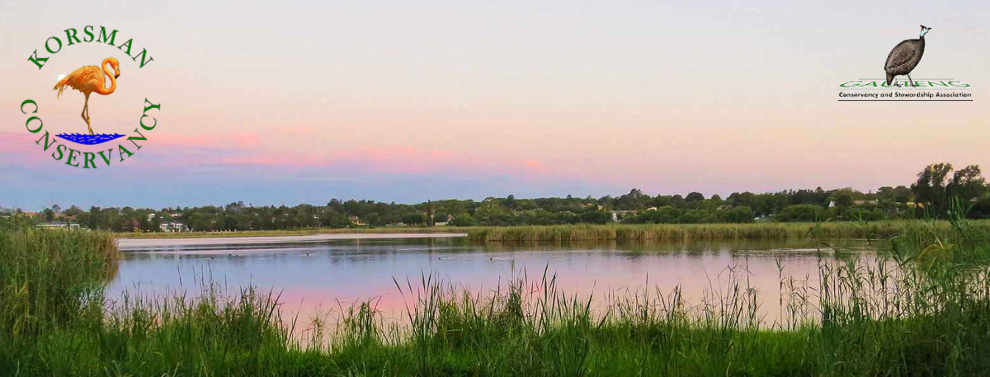
KORSMAN CONSERVANCY
When Assassin eggs hatch, the bugs look like miniature adults already in contrast to beetles. They moult several times and when they have grown their wings, they are adult.
What is the difference between a bug and a beetle?
One difference is that a bug has sucking mouthparts, and a beetle has chewing mouthparts.
L - Veterna Grass stink Bug, sucking a flower seed with its proboscis
R - Scobius snout beetle has scissor-like mouthparts
INTERESTING INSECT FACTS
- Did You Know?
|
|
BEETLE BABIES
What is a beetle before it becomes a beetle?
It is a larva - a specialised feeding stage that looks very different to the adult. The larvae on the left become the beetles on the right.
This grub on the left will become a chafer beetle on the right.
|
|
|
|
This prickly fellow on the left is the larva of Epilachnini (hairy plant-eating ladybirds) and loves Solanum plant species in the Conservancy, especially Umsoba or nastergal / nightshade plants.
|
|

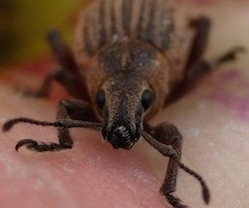
Does this caterpillar have pimples?
No, those are cocoons spun by parasitic wasp larvae. They emerged from inside the caterpillar where the adult laid its eggs. They ate the caterpillar from the inside.

What is that mass on the tree branch?
A bee swarm.
When bees have to move or divide their hive, they gather on a tree limb while scouts look for a new home. They must find one within a day or two, or the swarm starves.
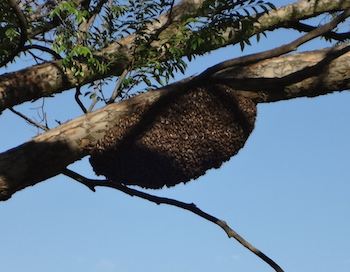
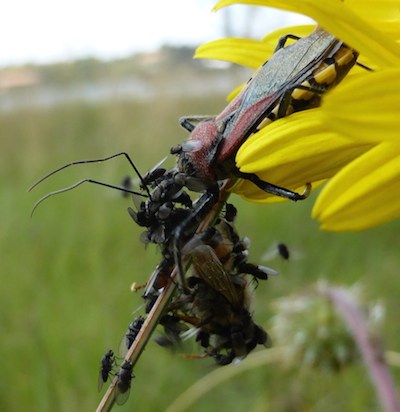
Who's eating who?
A Flower Assassin bug has caught a bee, and is being mobbed by tiny Jackal flies - scavengers that suck up body juices from the prey.
Ever heard of paternal leave for insects? Assassin bug males guard their eggs to make themselves attractive to other females because it shows they will care for the female's eggs.
BUT.... In this species, Rhynocoris tristis, the males have been shown to cannibalise some of the eggs as an alternative source of food while guarding.
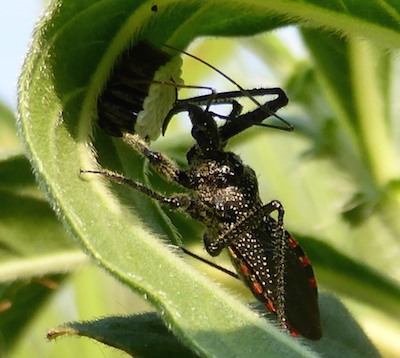
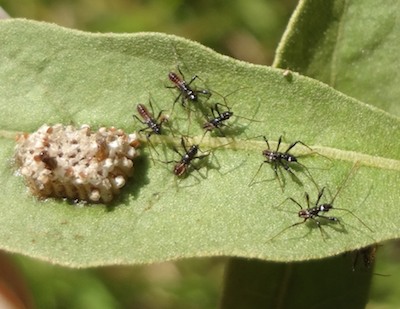
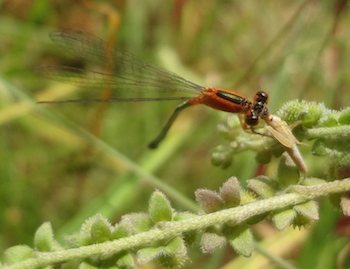
Dragonflies and Damselflies have few species compared to other insect orders. This is because they are at the top of the insect food chain, as super-predators.
This female Tropical Bluetail damselfly has caught a grasshopper nymph.

Is this insect impaled on a grass stalk?
No, it is asleep! It is a cuckoo bee which sleeps by clamping its jaws onto a grass stem.
As the name cuckoo bee implies, it lays its eggs in the the nests of other bees. They don't have their own hives.


